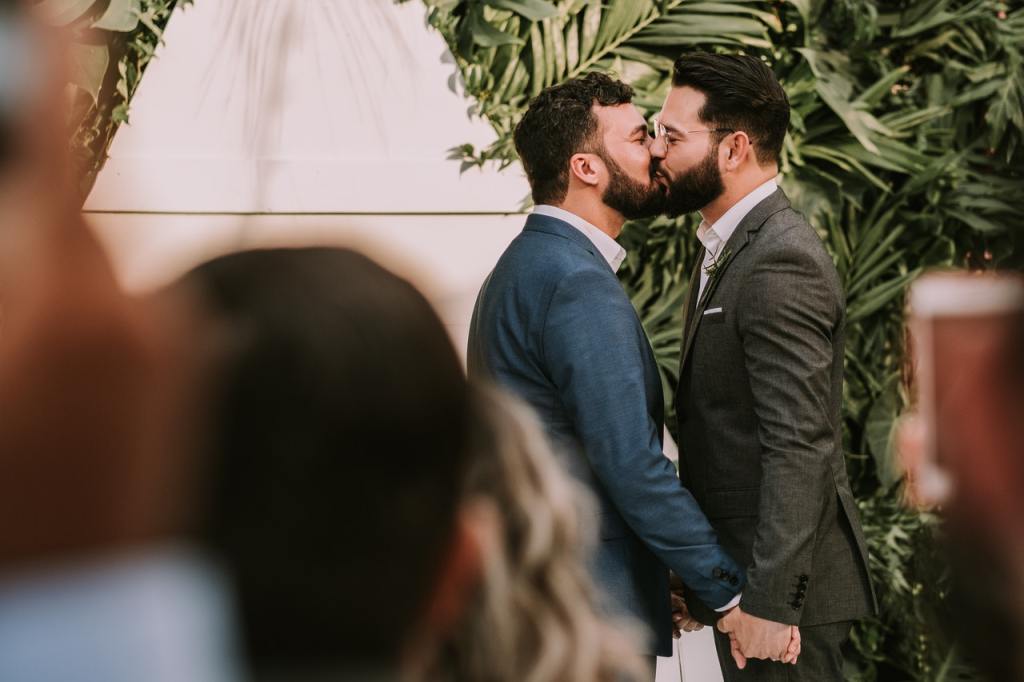Texas judge defends decision not to marry same-sex couples at Supreme Court

A Texas judge is defending her decision not to wed same-sex couples. (Pexels)
A Texas judge has appeared at the state’s Supreme Court to defend her decision to refuse to marry same-sex couples.
Dianne Hensley, a Texas justice of the peace, was slapped with a public warning from the State Commission on Judicial Conduct back in 2019 for refusing to perform same-sex wedding ceremonies, citing religious grounds, The Texas Tribune reports.
The Commission warned that Judge Hensley’s actions might affect her “capacity to act impartially to persons appearing before her as a judge due to the person’s sexual orientation.”
In response, Hensley decided not to file an appeal, but to instead file a lawsuit against the Commission, claiming that her religious freedom rights had been violated.

Before appearing at the Texas Supreme Court, Hensley brought her case to a trial court and, last year, the Court of Appeals, both of whom dismissed the suit since Texas’s religious freedom law only bans “threatened or continued violation” of a person’s religious practice, whereas Hensley was given a single warning. Moreover, the courts ruled that the State Commission acted within its powers.
Since 2015, every US state has been required to license same-sex marriage, however, Texas justices of the peace are not required to officiate at any wedding.
On Wednesday (25 October), the state’s Supreme Court heard oral arguments on both sides.
Justices questioned why Hensley had gone straight to suing the State Commission rather than trying to appeal the original warning.
Hensley’s attorney Jonathan Mitchell told the court that she opted to sue rather than pursue the commission’s statutory appeals process because it did not offer the relief she was looking for.

Hensley is not seeking to appeal her warning, but to achieve class-action relief so that any justice of the peace can refuse to officiate same-sex weddings if they wish to do so.
Meanwhile, the State Commission argued that its warning to Hensley does not prohibit Hensley from practicing her religion, and claimed that she was simply seeking a “license to discriminate.”
The commission’s attorney Douglas Lang added that the commission would rather that justices of the peace officiate no weddings at all, rather than only marry heterosexual couples.
“She has chosen to marry some folks and not others,” Lang said. “She has chosen to discriminate between some folks in the state of Texas, in favor of other people, and it flies in the face of impartiality.”
Lang pointed out that, although judges do not have to give reason as to why they do not want to conduct marriages, Hensley did not take that approach, and told local media that she would not marry same-sex couples based on her Christian beliefs – a move that was cited in her 2019 warning.
Hensley also had her court clerks give a handout to an assumed gay couple to let them know that she could not perform same-sex marriage ceremonies due to her religious beliefs and suggested alternative officiants, Lang noted.
Elsewhere in her argument, Hensley’s attorney claimed that she had lost income by not performing wedding ceremonies since her warning, which would constitute a burden on the free exercise of her religion.
However, Chief Justice Nathan Hecht disputed that justices often give up certain kinds of income by taking office as judges.
Hensley’s attorney also noted that “if the legislature were to pass [a law that bans wedding officiants from turning down certain couples], Judge Hensley would follow that”, but at present there is no such legislature.
It is expected that a case of this complexity will take at least two months for justices to reach a verdict, Waco Tribune reports.
How did this story make you feel?

